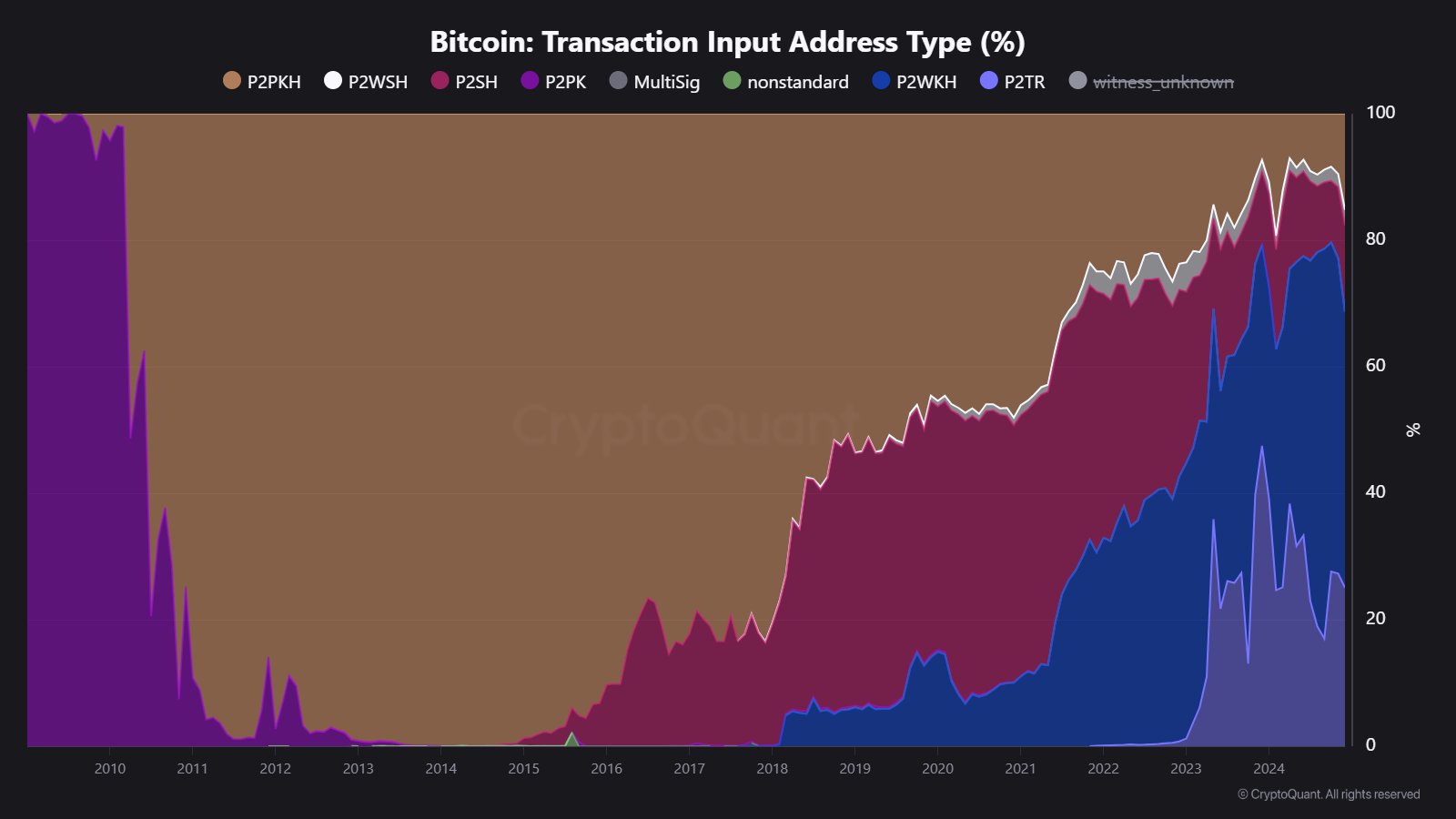It appears that the recent developments in quantum computing, causing anxiety within the cryptocurrency market, especially about Bitcoin‘s future durability, are back in focus again.
In a series of recent updates on their platform, CryptoQuant, a data analysis tool focused on blockchain technology, underscored potential dangers related to quantum computing as a significant threat to Bitcoin.
The conversation centered around two essential points: ensuring the security of Bitcoin mining operations and addressing potential weaknesses related to private keys, areas that may encounter substantial hurdles with advancements in quantum technology.
Quantum Threats to Bitcoin Mining and Network Security
In simpler terms, the way Bitcoin maintains its security and verifies transactions is through a system called proof-of-work (PoW). This system requires a lot of computational power. A specific function, SHA-256, which is crucial in Bitcoin mining, helps keep the network secure by making it difficult for dishonest users to alter the blockchain.
On the other hand, CryptoQuant issues a cautionary note about quantum computers. These sophisticated devices might significantly speed up the process of solving hashes, thanks to their use of complex algorithms like Grover’s.
If quantum computers can surpass classical mining equipment in performance, they might significantly shift the mining landscape, empowering quantum-enabled miners to lead in block verification. Such leadership could disturb network agreement and potentially threaten Bitcoin’s decentralized framework.
CryptoQuant underscores the need for a substantial portion of the network’s computational power to come from non-quantum computers. This balanced and varied mining environment would help reduce the potential threats if any single entity were to gain excessive control through quantum technology.
Keeping a close eye on recent advancements in quantum mining is essential for interested parties such as miners and developers, given that the concept of quantum supremacy in this context is still uncertain.

Private Key Security: Vulnerabilities And Adaptations
As a crypto investor, I’ve come to realize that beyond mining, quantum computing poses a potential threat to the security of my Bitcoins’ private keys. You see, the Bitcoin network relies on cryptographic systems to safeguard wallets and transactions. These systems are based on public and private keys, which essentially determine ownership. However, if quantum computers become powerful enough, they could potentially crack these encryption methods, putting my Bitcoin holdings at risk. It’s a fascinating world we’re in, isn’t it? Always learning and adapting to new challenges.
Based on information from CryptoQuant, it’s theorized that Shor’s Algorithm might enable quantum computers to decipher private keys using only public keys. This could potentially jeopardize the security of digital wallets.
Of special concern are Pay-to-Public-Key (P2PK) addresses, which use the public key itself as the wallet address. On the other hand, Pay-to-Public-Key-Hash (P2PKH) addresses offer enhanced security by first hashing the public key before using it.
Private Key Security & Quantum Risks
A significant worry lies with Shor’s Algorithm, a theoretical method that might enable quantum computers to decipher private keys from publicly shared ones. ‘Pay-to-Public-Key’ (P2PK) addresses are particularly susceptible to quantum threats since the public key is directly involved in them, making it easier for quantum attacks to exploit this vulnerability.
— CryptoQuant.com (@cryptoquant_com) January 7, 2025
In contrast, when Bitcoin from these specific addresses gets moved, their associated public keys become vulnerable, potentially making them more susceptible to quantum-based attacks. Notably, there’s been an uptick of about 14% in the use of P2PKH addresses over the past few months, as reported by CryptoQuant.
Although the specific reason for this change is yet unknown, it indicates a growing concern and vigilance among Bitcoin owners about potential quantum threats.
Featured image created with DALL-E, Chart from TradingView
Read More
- REPO: How To Fix Client Timeout
- UNLOCK ALL MINECRAFT LAUNCHER SKILLS
- Unaware Atelier Master: New Trailer Reveals April 2025 Fantasy Adventure!
- 10 Characters You Won’t Believe Are Coming Back in the Next God of War
- 8 Best Souls-Like Games With Co-op
- Top 8 UFC 5 Perks Every Fighter Should Use
- All Balatro Cheats (Developer Debug Menu)
- Unlock Wild Cookie Makeovers with Shroomie Shenanigans Event Guide in Cookie Run: Kingdom!
- How to Reach 80,000M in Dead Rails
- BTC PREDICTION. BTC cryptocurrency
2025-01-09 07:42
